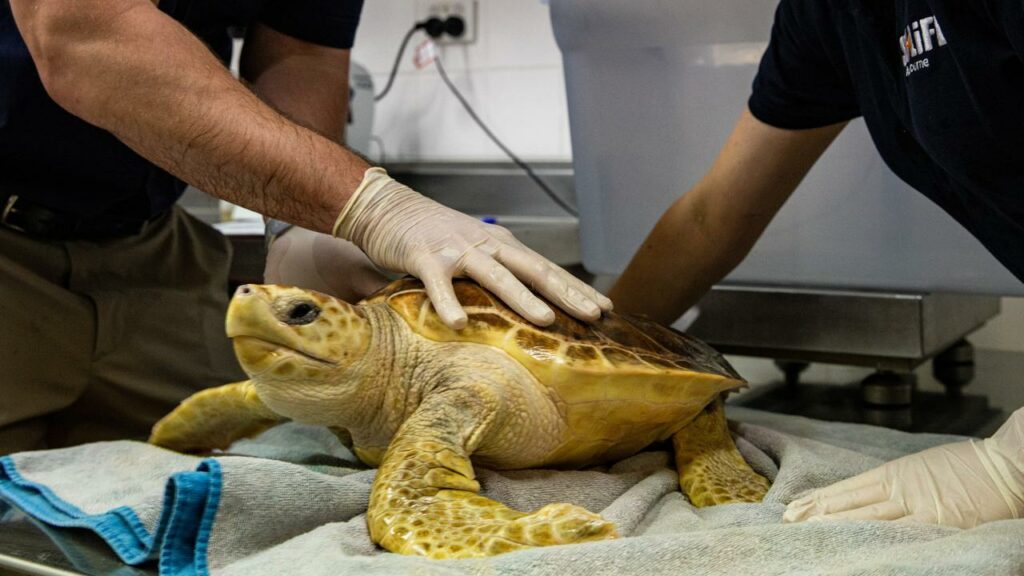Wildlife faces double-whammies from floods
Tracey Ferrier |

A baby turtle washed up on a flood-ravaged beach had also eaten a near fatal meal of plastic in a case that demonstrates the enormous pressure on wildlife carers.
Carers and vets are reporting a 50 to 60 per cent increase in wildlife needing help in flood-affected areas and many have multiple problems, WWF Australia says.
As well as their injuries, many animals are also hypothermic and malnourished, with shelter and food sources washed away.
Ground-dwellers such as echidnas and wombats that were unable to quickly move to higher ground have faced devastating effects.
“Those that have survived are appearing more frequently on roads and are at an increased risk of road traffic accidents,” says Prishani Vengetas, a vet who co-ordinates WWF’s wildlife recovery project.
“We’re also concerned platypus whose burrows in riverbanks have been destroyed and whose food supplies of aquatic invertebrates will be impacted by muddy water.”
WWF has launched a fundraising drive to make sure carers and vets have the resources they need to help survivors such as Pretzel, the green turtle hatchling.
Pretzel was only a week or two old when he or she was washed ashore, alongside flood debris, at New Brighton Beach on the NSW north coast last week.
The hatchling was taken to the Byron Bay Wildlife Hospital where an x-ray machine paid for by WWF detected a blockage in the critter’s colon. It was plastic.
“Here’s this perfect little creature, which hasn’t even seen the world yet, and one of its first meals is plastic. It’s absolutely shocking,” treating vet Chantal Whitten says.
Pretzel was given a laxative to expel the plastic before being moved, along with some adult turtles, to Sea World on the Gold Coast. They were moved due to concerns about sea-water quality after the northern NSW floods.
Previous studies suggest about 52 per cent of turtles have ingested large pieces of plastic and that’s expected to rise with more debris in the water after the floods.
Microplastics also kill sea turtles and other marine life because they can’t digest the material. The end result is organ damage, says Sea World, marine scientist Siobhan Houlihan.
“We should never get desensitised to this but we are worryingly seeing more cases in the rescued animals which come into our care.”
Kate Noble leads WWF-Australia’s campaign against plastic urged Australians to reject plastic wherever possible and be part of the battle against the pervasive pollutant.
“Ocean plastic pollution is a disaster for people, animals like Pretzel and the planet, and it’s set to triple by 2040 unless we take serious action,” she says.
“It’s time to turn off the plastic tap. We all have a role to play, from reducing the plastic we use at home and eating out, through to bans at state level, and a global treaty on plastic pollution, which more than 170 countries last week agreed to start work on.”
AAP